Cape Town to Victoria Falls small group lodge tour
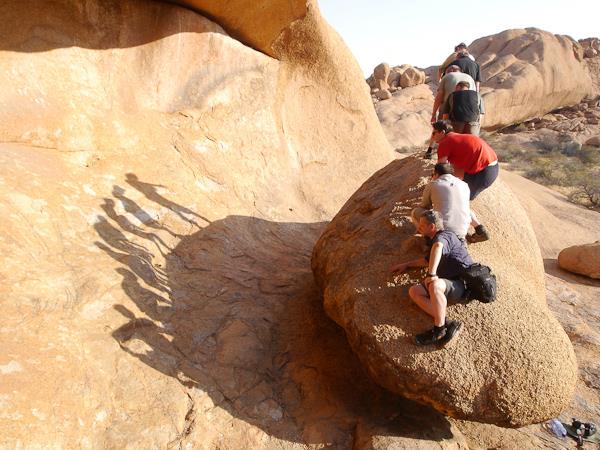
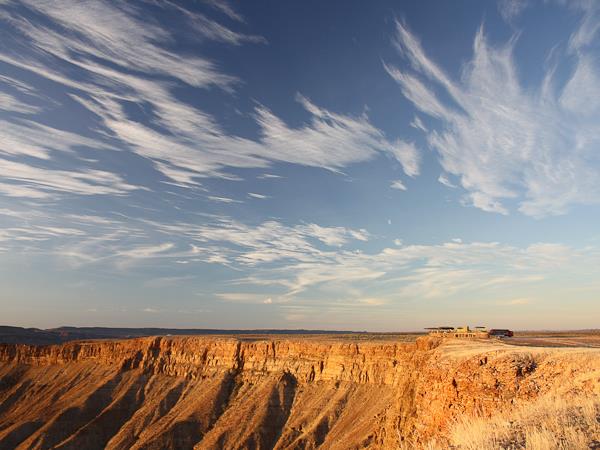
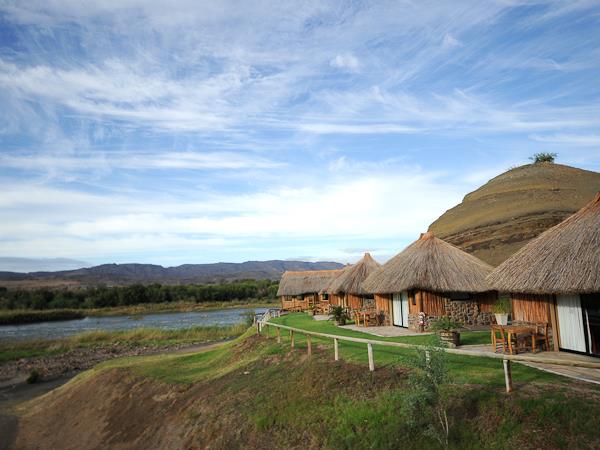
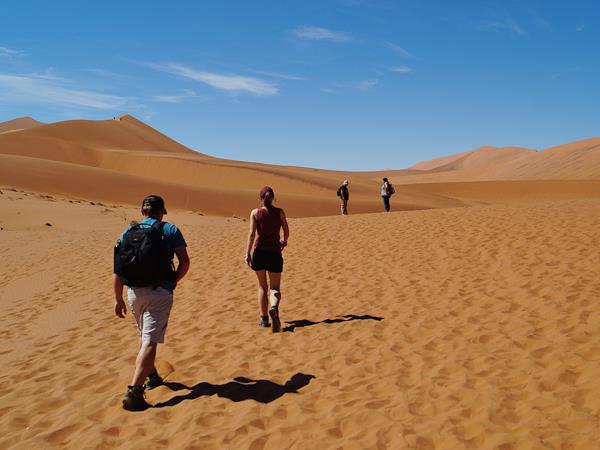
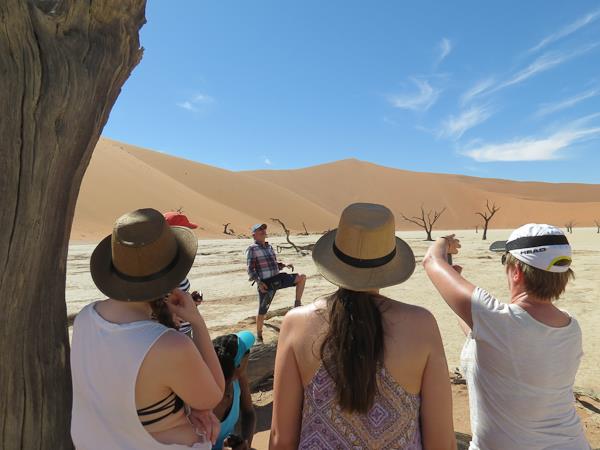
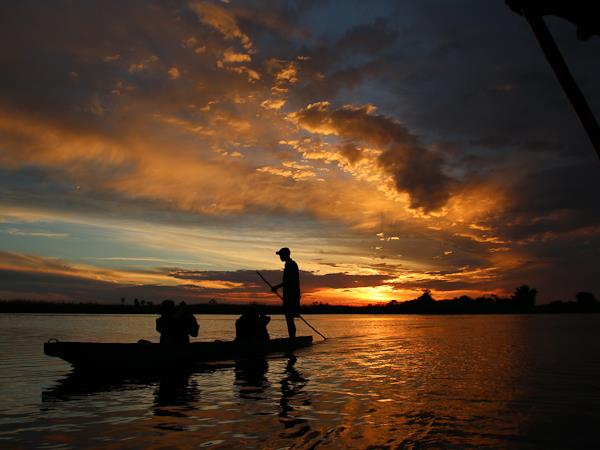
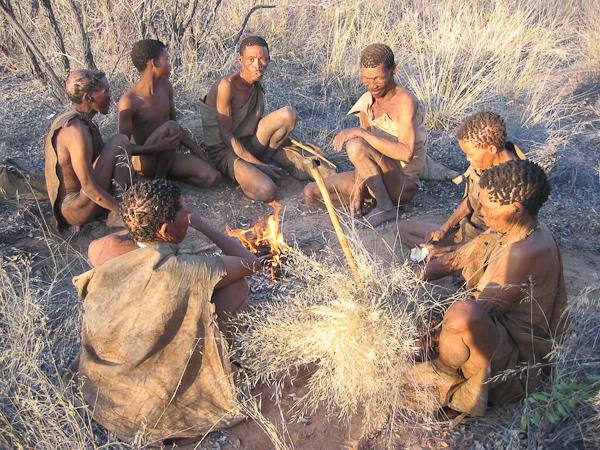
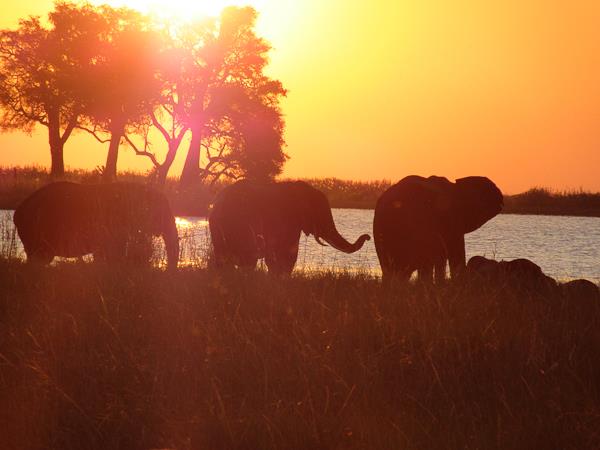
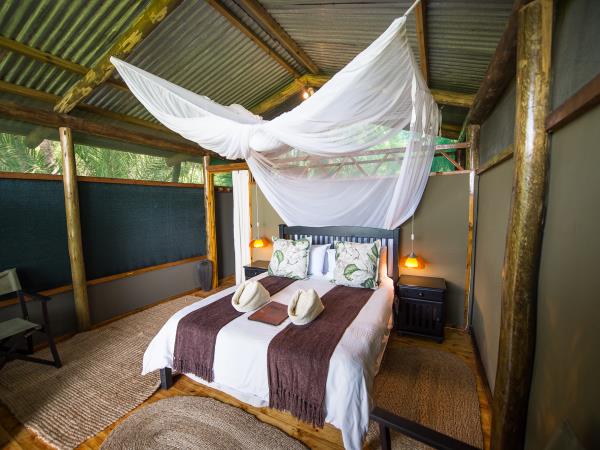
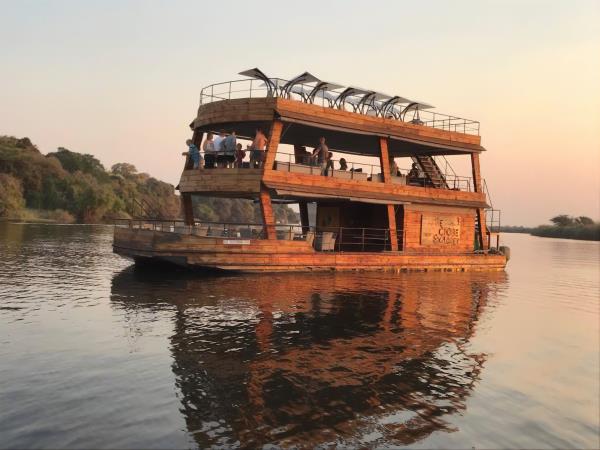
Guaranteed departures.
Single supplement EUR 805 (2024) Minimum age 12.
Description of Cape Town to Victoria Falls small group lodge tour
This South Africa safari itinerary incorporates Cape Town, Victoria Falls and pretty much everything in between, including: Etosha National Park, the Namib Desert and the amazing islands and waterways of the Okavango Delta. Travelling overland on a southern Africa tour couldn't be easier with small lodge accommodation providing affordable and comfortable sleeping arrangements within some exceptionally beautiful surroundings.
Overnight sleeping arrangements feature 19 nights on safari we stay at guest houses, chalets and small lodges including tented lodges, with en-suite facilities. 1 night in the Cederberg where chalets with two bedrooms share a bathroom.
Meals included 20 breakfasts, 17 lunches and 11 dinners are included. Of which 7 breakfasts are provided by the lodges. The remaining included meals are provided by the crew, prepared at the vehicle & eaten around the campfire or at the boma.
The overland transport vehicles used throughout this epic three week southern Africa tour are purpose built 12-seater Africa safari trucks with all seats facing forwards to maximise viewing potential.
If you're hoping to get as much out of this experience as possible then joining in is always the best policy. A little bit of help on a South Africa safari always goes a long way with truck packing, washing up and keeping happy and positive during long drives and early starts assisting the group as a whole over the course of the three week adventure.
This southern Africa tour is available all year round with the regions rainy season, from December to May, always popular with birdwatchers looking to spot myriad migratory and indigenous species enjoying the abundance of lush, green foliage, even in the desert areas.
The drier season in southern Africa takes place throughout the remaining months of the year with a lack of vegetation and fewer opportunities around the watering holes adding to exceptional game watching potential despite the drop in temperatures in the evening and first thing in the morning.
Map
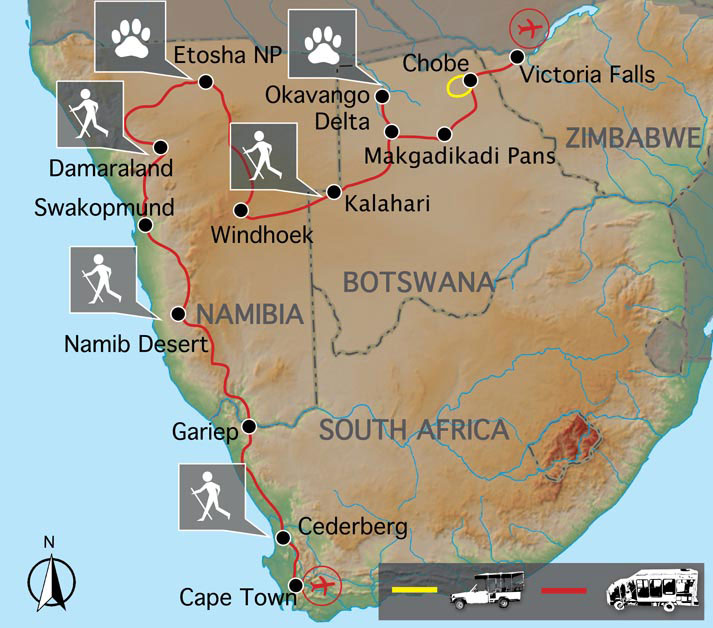
Price information
Check dates, prices & availability
Travel guides
Holiday information
Reviews
5 Reviews of Cape Town to Victoria Falls small group lodge tour
Reviewed on 05 Jul 2023 by Simon Page
Great memories that will last a lifetime - just do it! Read full reviewReviewed on 03 May 2023 by Peter Lowles
I have travelled to over 50 countries now, but this was the best trip ever. Read full reviewReviewed on 29 Sep 2017 by Tim Gregory
There were many memorable moments. Camping in the Okovango Delta was amazing, and the walks around the delta meant that we could get really close to some animals without disturbing them. The sunset cruise on the Chobe River enabled us to see loads of elephants taking baths and they weren't bothered at all by our presence. Read full reviewReviewed on 23 Nov 2016 by Arvind Sharma
The whole holiday was wonderful especially drive through Namibia with spectacular scenery and its breathtaking landscape. Read full reviewReviewed on 09 Nov 2014 by Louis Carroll
Remember that this is Africa and everything does not work all the time. Be patient and positive and make friends along the way. Read full reviewResponsible Travel
Planet
Message from co-Founder of this Tour Operator. My name is Bruce and I am a founder of this tour operation. I believe that the old conservation tactic of the setting aside areas of "exclusion" for conservation are outdated.The reality is that in order for effective, sustainable conservation to take place, there needs to be an interest from the society of that country, conscious effort from government and local "buy in" from the local communities. Sadly the world is in a place where economic benefit is the overriding driving force of action and as such conservation is directly linked to economic benefit. Sustainable tourism is therefore absolutely essential for conservation to be effective. Not only for local communities to see value in conservation, but for countries as a whole to place value in protecting their natural heritage.
I believe there is a deep and instinctual link between our humanity and our natural environment. Inherently we all want to know that the wild places are still out there. And Eco-tourism gives us that opportunity, as we so often hear, to "rebalance" or "rejuvenate".
The various promises and commitments detailed below are only a representation of what it is that we do. I sincerely hope that our tours offer our clients an opportunity to experience the wonders of the African continent, and in some small way through focusing itineraries around wildlife and national parks, we contribute to environmental conservation both economically and spiritually.
If you join one of our trips, and have practical feasible suggestions about our responsible travel practices, please contact us. We strive to improve our operation and if we can do more for conservation in Africa, then we're all ears!
Low impact tourism & supporting local communities:
Small group travel: We specialise in small group travel with a maximum group size of 12 clients & minimum of 4. Small groups ensures a small impact on the destinations we visit when compared to larger groups. Smaller groups create an intimate safari experience, and mean that when we interact with local cultures and stay in environmentally sensitive areas, we do not leave a large footprint.
Fuel consumption: By travelling in a small group your carbon foot print is approximately ½ of self drive safari. The average pick-up car hire runs on approximately 12ltr/100km with generally 2 people per vehicle and this equates to approximately 6ltr/100km pp. Our average safari truck runs on 25ltr/100km with an average of 9.5 clients per tour and this equates to 2.6Ltr/100km pp. So, by joining a small group tour, your fuel consumption is less than half of doing a self-drive 4WD or pick up trip.
Cooking: We cook using gas as far as possible and, whenever feasible, avoiding cooking using fire or coal which depletes limited wood resources.
Wooden carving curios: We do take clients to local curio markets to support the local communities. If they want to buy a carving, we encourage clients purchase only small wooden carvings instead of large pieces. This is in an effort to again conserve the forests around the carving markets.
Waste: We ensure that we take all of our rubbish out of wilderness areas and use proper waste disposal facilities on all tours (and in the workshop, including oil traps, oil recycling, cleaning products etc).
Entrance fees: All entrance fees for the national parks in each country are used by the local authorities to maintain the condition and infrastructure of the national parks, and run regular anti-poaching patrols. These are often supplemented by government grants. The national parks support a large number of local community members often providing housing and schooling for the staff families. For us as a tour operator, supporting the various national park boards is an essential element to each tour.
Accommodation: On all tours wherever possible we use locally owned accommodation establishments which are involved in local responsible tourism initiatives. This provides direct benefits to local communities through employment. We avoid large hotel chains and more commercial properties but opt for simple self-catering lodge, B&Bs and tented camps for accommodation in rural areas. By doing this we create an intimate environment for group away from large scale tourism and the communities around the accommodation benefit directly through employment and this creates pride and further interest in sustainable tourism as the communities have tangible benefits from tourism. Our tours focus on out of the way destinations, and as such, our spend is distributed into rural areas.
Drinking Water: Each client, drinking 5 litres per day from 1 litre plastic bottles produces 100 waste plastic bottles on a 3 week safari. On this calculation, we would pollute the environment (and waste energy resources in plastic production) with over 250,000 plastic bottles per year! So as solution, each of our vehicles has a tank of clean drinking water that is filled up along the journey. This is safe tap water. We do not provide bottle water we encourage clients to drink the local clean drinkable tap water wherever possible in order to minimize the amount of plastic bottle waste produced by the purchase of bottled drinking water.
Water conservation: We are acutely aware that in many areas that we visit water is a scarce resource. Clients are encouraged to be conscious of water usage and not to take long showers or waste water.
Wildlife: On all game drives, our trained and qualified guides ensure that our groups interact with wildlife in the appropriate way. Slow movements, no loud noises and to respect the animals personal boundaries. Our philosophy is that we are visitors in the amazing places that we visit, and we do not want our presence to impact the wildlife and environment in any negative way. We also enforce a policy of not feeding any wildlife (animals habituated to human feeding will turn aggressive in the future which often results in authorities being forced to kill that animal) and to appreciate the natural state of the areas that we visit and to leave the area in exactly the same condition that it was when we arrived.
Local guides & communities: On each tour you will travel with two guides for the entire trip. In addition, we also employ local guides for certain activities on tour. These local initiatives help to maintain local cultures and also sustain the ideals of wildlife conservation. Tourism, goodwill and conservation all work together and we aim to maintain the delicate balance at all times! The employment of local guide adds value to our clients visit because they can gain specific local knowledge and expertise from the people who actually live permanently in the area they are visiting. These interactions also give our clients the chance to meet local people and see how tourism is benefiting Africa, piece by piece.
We use local guides at:
Botswana: Okavango Delta, Chobe NP, Ghanzi San Bushman excursion, national parks
South Africa: Mkuzi village walk, Qunu Mandela historical site, Kozi Bay
Swailand: Hlane walking
Lesotho: Malealea Lodge pony trekking guide
Malawi: Boat excursion on Lake Malawi
Mozambique: Dhow excursions
Namibia: Brandberg walk and drives (part of the Tsiseb Community Conservancy), Spizkoppe walk, Gariep River canoeing, Sossusvlei 4WD drivers,
Zambia: Lower Zambezi Canoe excursion, South Luangwa game walks and drives, Vic Falls optional activities
Zimbabwe: Great Zimbabwe Monuments, Matobos NP, Hwange NP, Victoria Falls
For more information on each of the community projects please talk to your guide or contact us.
Underprivileged Children Groups: We operate a number of tours into the national parks of South Africa for underprivileged children from schools based in Johannesburg, South Africa. PEN Organisation is an independent, non-governmental and social development organisation. Its activities focus on neglected and abandoned children and orphans, as well as disadvantaged families. We try to run these tours as often as possible during the course of a year. We believe that the youth are Africas future and that environmental education is important. This opportunity allows them to see for themselves wildlife (perhaps for the first time), nature conservation at work, and also show them employment opportunities that are available in the conservation or tourism industry, and possibly encourage them to follow a career in tourism (for this reason we aim these groups at 14-18 year olds).
Local crafts and produce: At all local markets where fresh produce and crafts are sold and produced, we encourage the clients to barter (gently and in good humour) with the local people. This not only allows the clients to get involved with the local way of life, and interact directly with the local people, but also provides them a platform to experience local life first hand. Having said that, we explain to the clients by bartering too hard for a good deal might seem like a lot of money at the time, but if the amount being haggled over is converted to either US$, Euro or GBP, it amounts to very little. This is the local livelihood and we advise them to keep this in mind at all times.
Wildlife Rehabilitation Centre: We assist a wildlife rehabilitation centre in Springs, Johannesburg. Judy Davidson runs a licensed rehab centre from a small holding. A variety of birds are cared for, from injured barbets, doves, and crows to a brown snake eagle, a Gymnogene, and spotted eagle owls. All birds are treated in a small makeshift clinic, and then kept in aviaries until they have recovered. Once able to fly, or care for themselves again, they are moved to a 'flight' aviary, for a period until they have regained strength. They are then released back into the wild. Those birds which are unable to be released are kept in large aviaries and fed through various donations. We assist the project with donations of practical equipment including shade netting, paint and other items on their wish list.
People
Okavango Delta: We use local community 'polers' to take us into the Okavango Delta. The polers have an intimate knowledge of the Okavango Delta, and their employment as guides ensure that the local community benefit from tourism and ensures that these areas are conserved for future generations.The Okavango Delta, 1000th World Heritage Site, is an important wildlife refuge for many animals, both resident and migratory. It attracts thousands of tourists to Botswana annually, and maintaining the pristine nature of the environment is very important to the country. Water from the Delta is integral to the continued sustainability of the Botswana tourism industry. Without water, the environment would no longer support such diversity. There have been many talks about damming upper sections of the Kavango River which feeds the Okavango Delta. Should this go ahead it will disrupt the natural system of the Delta and adversely affect the wildlife and the industry as a whole. Tour leaders will explain all of this to clients so that clients are made aware of what potentially could happen if this plan is implemented. The more people who are made aware of the threats to this ecosystem, the less likely it is to happen. By people visiting the Delta, creating jobs, and allowing the delta to make much needed funds, the less likely it is that the planned dam will go ahead.
Okavango SOS trees project - Okavango Botswana: For hundreds of years, the local communities in and around Botswana's Okavango Delta have used the wood of the sausage tree to craft their traditional mokoro (dugout canoes). The knowledge and skill have been passed down from generation to generation and, up until recently, has been a sustainable practice. With increasing numbers of people visiting the Delta each year, more mokoro are needed and as a direct result, more and more Sausage Trees (Kigela Africana) are being felled and the tree is sadly disappearing from the region. A traditional wooden mokoro will have to be replaced every five years, thereby placing increased pressure on the dwindling Sausage Tree supply.
As a solution we have established a project to encourage polers in the local communities to buy replica fibreglass mekoros, which have a lifespan of approximately ten years, are more stable and are produced with much less negative affect to the environment. As such, sponsorship for each fibreglass mokoro is needed, and a portion of the tour cost will be donated to the project, but we also will offer our clients the opportunity to contribute to this worthwhile cause. Please feel free to contact the our office for more information on the SOS Trees project or if you would like to make any contributions towards this project. It is something that is close to all of our hearts and we have been successful in replacing 30+ (circ. 2015) mekoro thus far.
Wild Camping in Botswana: As a camping tour this means our environmental impact is minimal. We stay in designated campsites, and leave it in a pristine condition. Litter is strictly policed. The potential of creating wildfires is great, so the group is briefed on smoking restriction and how to dispose of cigarette butts.
All camps are un-fenced, so the potential is there for the wildlife to come into camp and clients are briefed as to the restrictions of keeping to camp and not wandering away from the confines of the campsite.
Popular similar holidays
The Grand Southern Africa safari
From £2384 - £2649 20 days excluding flights
21-day tour from Cape Town to Victoria Falls
South Africa holiday, Cape Town to Kruger
From £3000 10 days excluding flights
Cape Town, Kruger and Victoria Falls
Cape Town to Vic Falls small group tour
From £1971 - £2530 22 days excluding flights
Adventure packed holiday from Cape Town to Victoria Falls




















